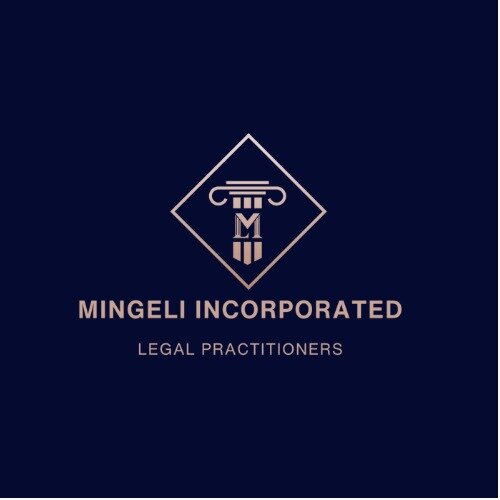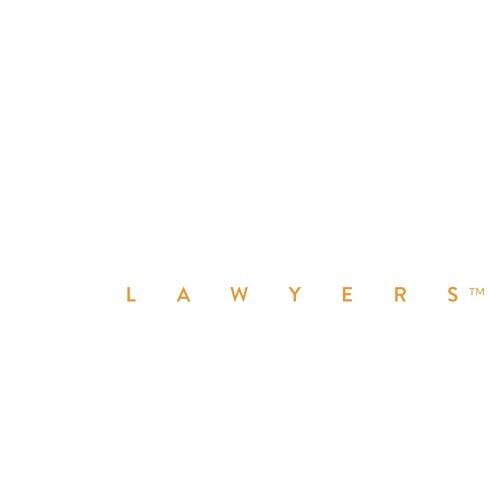Best Employment & Labor Lawyers in Windhoek
Share your needs with us, get contacted by law firms.
Free. Takes 2 min.
List of the best lawyers in Windhoek, Namibia
About Employment & Labor Law in Windhoek, Namibia
Employment and labor law in Windhoek, Namibia, is designed to govern the relationship between employers and employees. The primary legislation in Namibia is the Labour Act, which outlines the rights and obligations of both parties in the workplace. The Act aims to ensure fair treatment, safety, and equity for employees, while providing a framework that supports healthy employer-employee relations. Key issues addressed include working hours, wages, leave entitlements, termination of employment, workplace safety, and dispute resolution mechanisms.
Why You May Need a Lawyer
There are several instances where you might require legal assistance in employment and labor matters in Windhoek, Namibia. These include:
- Unlawful Termination: If you believe you have been dismissed without just cause or due process.
- Contract Disputes: Issues related to the terms of employment contracts, including provisions on salary, benefits, and job responsibilities.
- Discrimination Claims: Facing discrimination based on race, gender, age, religion, or other protected categories.
- Harassment: Addressing cases of workplace harassment, including sexual harassment.
- Unfair Labor Practices: Ensuring compliance with labor laws regarding wages, working conditions, and employee rights.
- Workplace Safety Violations: Dealing with unsafe working conditions or workplace accidents.
- Collective Bargaining and Union Issues: Navigating disputes related to union membership and activities.
Local Laws Overview
The key local laws relevant to employment and labor in Windhoek, Namibia include:
- Labour Act: Establishes the minimum standards for employment conditions, including working hours, rest periods, and termination procedures.
- Employment Services Act: Provides guidelines on the registration of job seekers and vacancies, aiming to facilitate job matching.
- Occupational Health and Safety Regulations: Mandates the creation of safe working environments to protect employee health and safety.
- Social Security Act: Requires employers to register employees for social security benefits, ensuring support for employees in cases of illness, maternity, and retirement.
- Affirmative Action (Employment) Act: Promotes equal opportunities and addresses historic disadvantages in the workplace.
Frequently Asked Questions
What is the legal minimum wage in Namibia?
Namibia does not have a set national minimum wage. Instead, minimum wages are sector-specific and agreed upon through collective bargaining agreements or determined by the Wages Commission.
How many hours constitute a normal working day in Namibia?
The standard working day is capped at 8 hours, resulting in a 40-hour week, with any extra hours considered overtime requiring additional compensation.
What are my rights regarding unfair dismissal?
Employees are protected from unfair dismissal by law. If terminated, an employee must receive written notice and reasons for dismissal. Unfair dismissal can be contested through the Office of the Labour Commissioner.
Can I join a union while working in Windhoek, Namibia?
Yes, employees in Namibia have the right to join and participate in labor unions without facing discrimination or prejudice from employers.
Who enforces labor laws in Namibia?
The Ministry of Labour, Industrial Relations and Employment Creation is responsible, supported by the Labour Inspectorate and the Office of the Labour Commissioner.
How are workplace disputes resolved?
Disputes can be resolved through negotiation, mediation, or arbitration, often facilitated by the Office of the Labour Commissioner.
What are my leave entitlements as an employee?
Under the Labour Act, employees are entitled to a minimum of 24 consecutive days of annual leave, as well as sick and maternity leave depending on service duration.
Is training considered part of working hours?
Yes, any training required by the employer is counted as part of standard working hours and should be compensated accordingly.
What steps should I take after a workplace accident?
Report the accident to your employer immediately and seek medical attention. The employer must then report the incident to the relevant authorities and provide necessary support.
Can contracts be in English?
Yes, employment contracts can be drafted in English, which is commonly used in business. However, both parties must clearly understand the contents of the contract.
Additional Resources
- Ministry of Labour, Industrial Relations and Employment Creation: The primary government body handling employment laws and regulations.
- Office of the Labour Commissioner: Facilitates dispute resolution and enforces labor laws in Namibia.
- Legal Assistance Centre: Offers legal aid and representation services for employment-related issues.
- Namibia Employers' Federation: Provides resources for employers on compliance with employment laws.
- National Union of Namibian Workers: Represents employees’ rights and interests in various sectors.
Next Steps
If you need legal assistance with employment and labor issues in Windhoek, Namibia, consider taking the following steps:
- Identify and articulate your specific legal issue or concern, gathering any relevant documents or evidence.
- Contact a reputable labor law attorney or the Legal Assistance Centre to discuss your case and explore your legal options.
- If your matter involves a workplace dispute, you may also choose to approach the Office of the Labour Commissioner for mediation or arbitration services.
- Stay informed about your rights and responsibilities as an employee and seek legal advice early to avoid escalation of disputes.
Lawzana helps you find the best lawyers and law firms in Windhoek through a curated and pre-screened list of qualified legal professionals. Our platform offers rankings and detailed profiles of attorneys and law firms, allowing you to compare based on practice areas, including Employment & Labor, experience, and client feedback.
Each profile includes a description of the firm's areas of practice, client reviews, team members and partners, year of establishment, spoken languages, office locations, contact information, social media presence, and any published articles or resources. Most firms on our platform speak English and are experienced in both local and international legal matters.
Get a quote from top-rated law firms in Windhoek, Namibia — quickly, securely, and without unnecessary hassle.
Disclaimer:
The information provided on this page is for general informational purposes only and does not constitute legal advice. While we strive to ensure the accuracy and relevance of the content, legal information may change over time, and interpretations of the law can vary. You should always consult with a qualified legal professional for advice specific to your situation.
We disclaim all liability for actions taken or not taken based on the content of this page. If you believe any information is incorrect or outdated, please contact us, and we will review and update it where appropriate.
Browse employment & labor law firms by service in Windhoek, Namibia
Windhoek, Namibia Attorneys in related practice areas.















